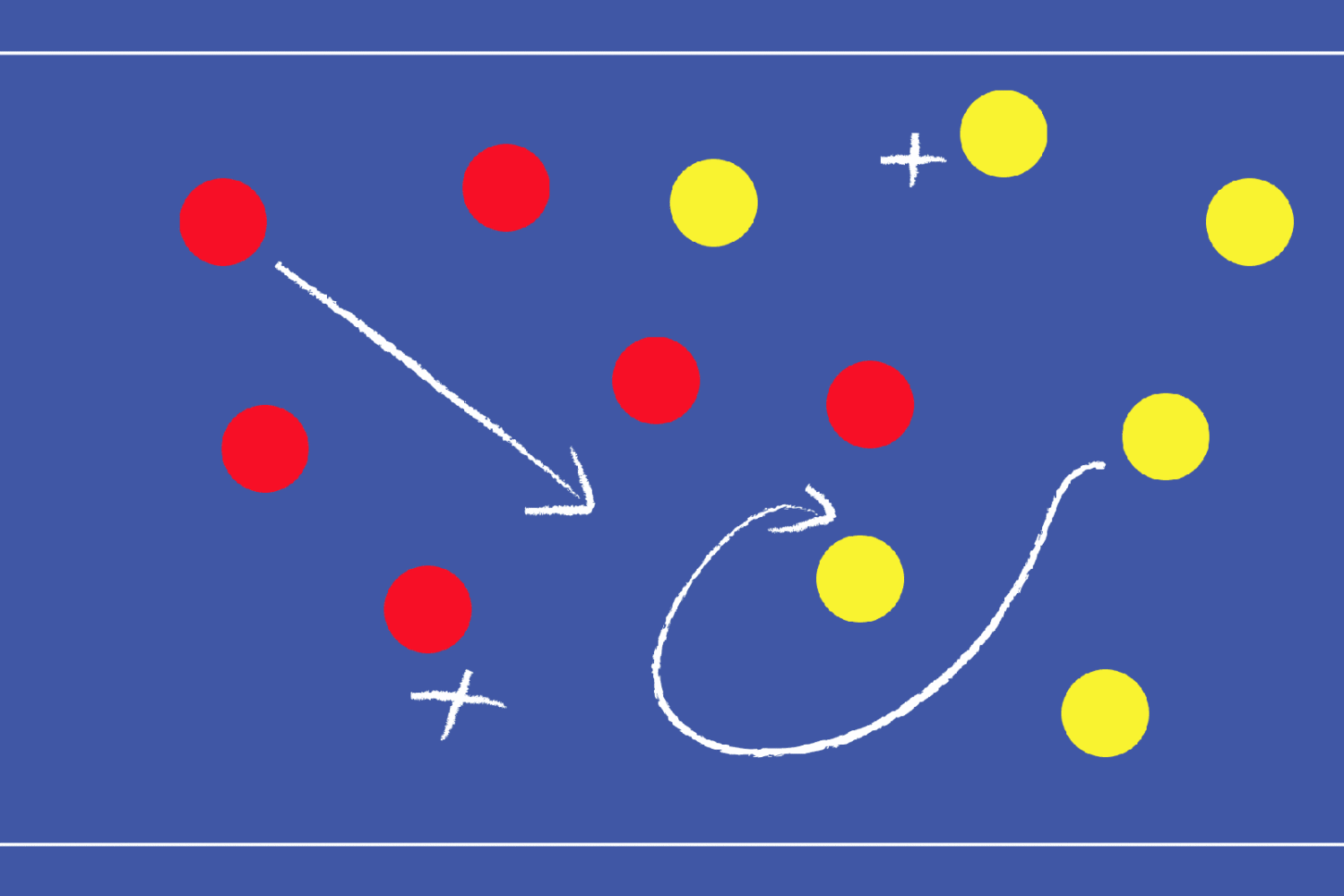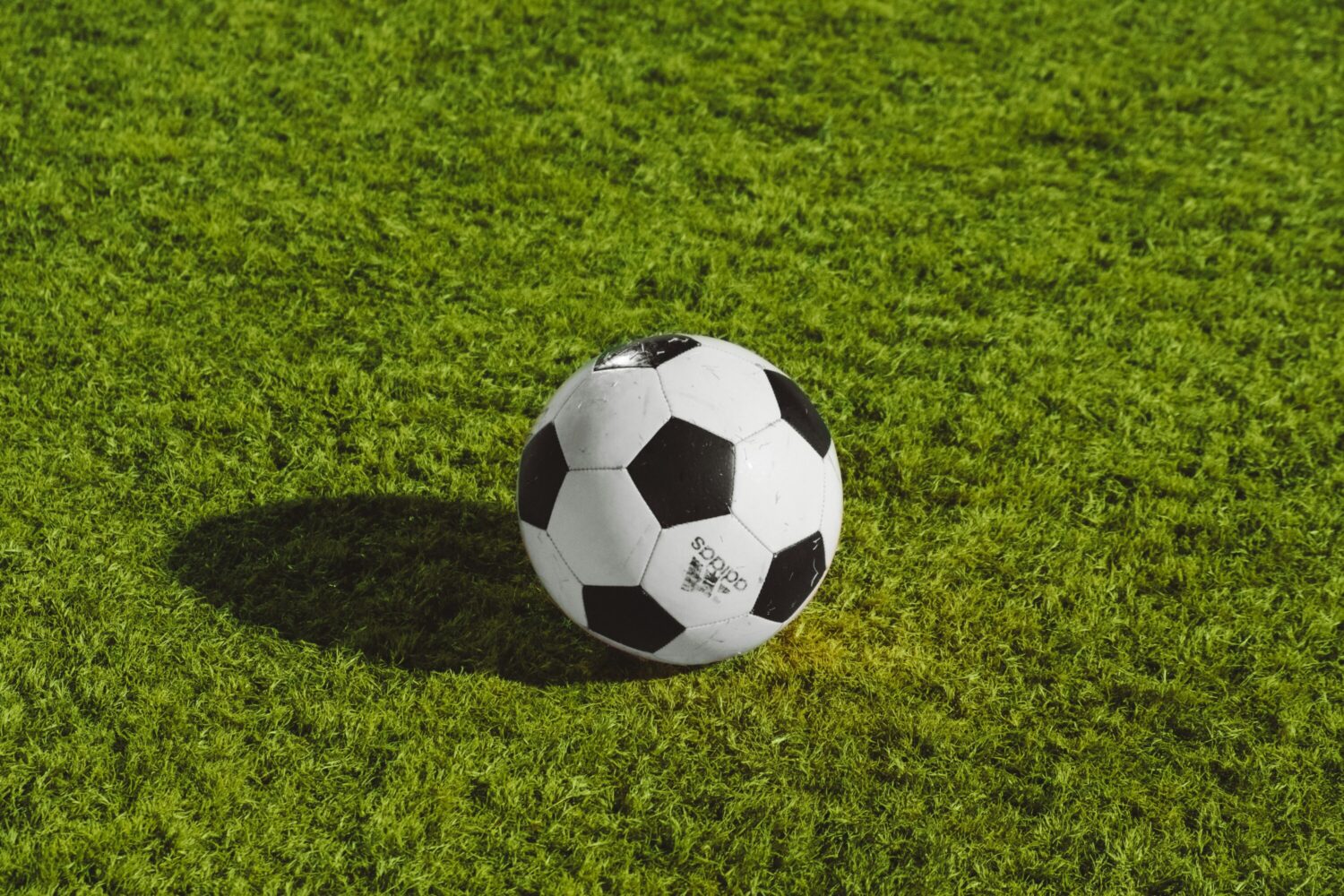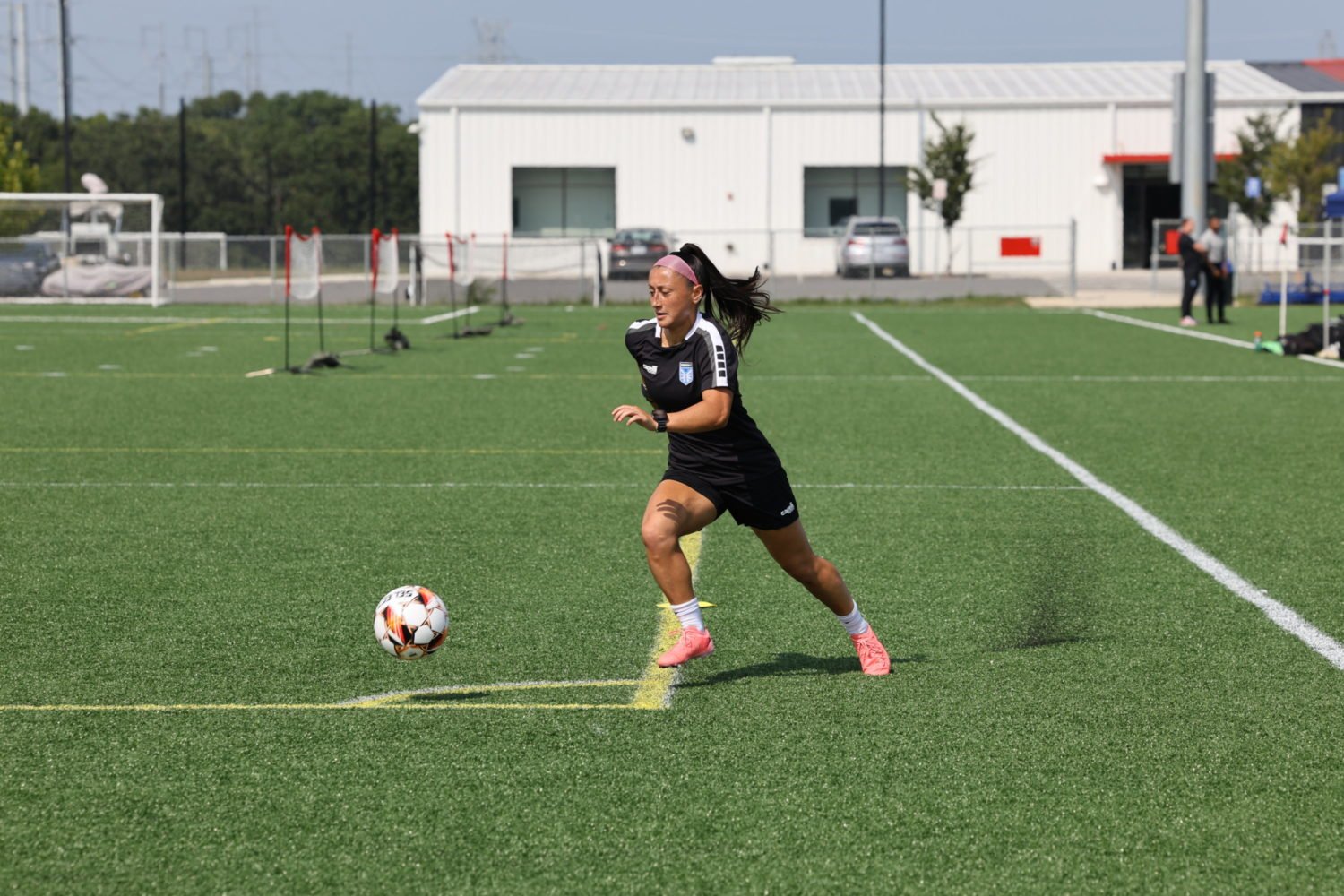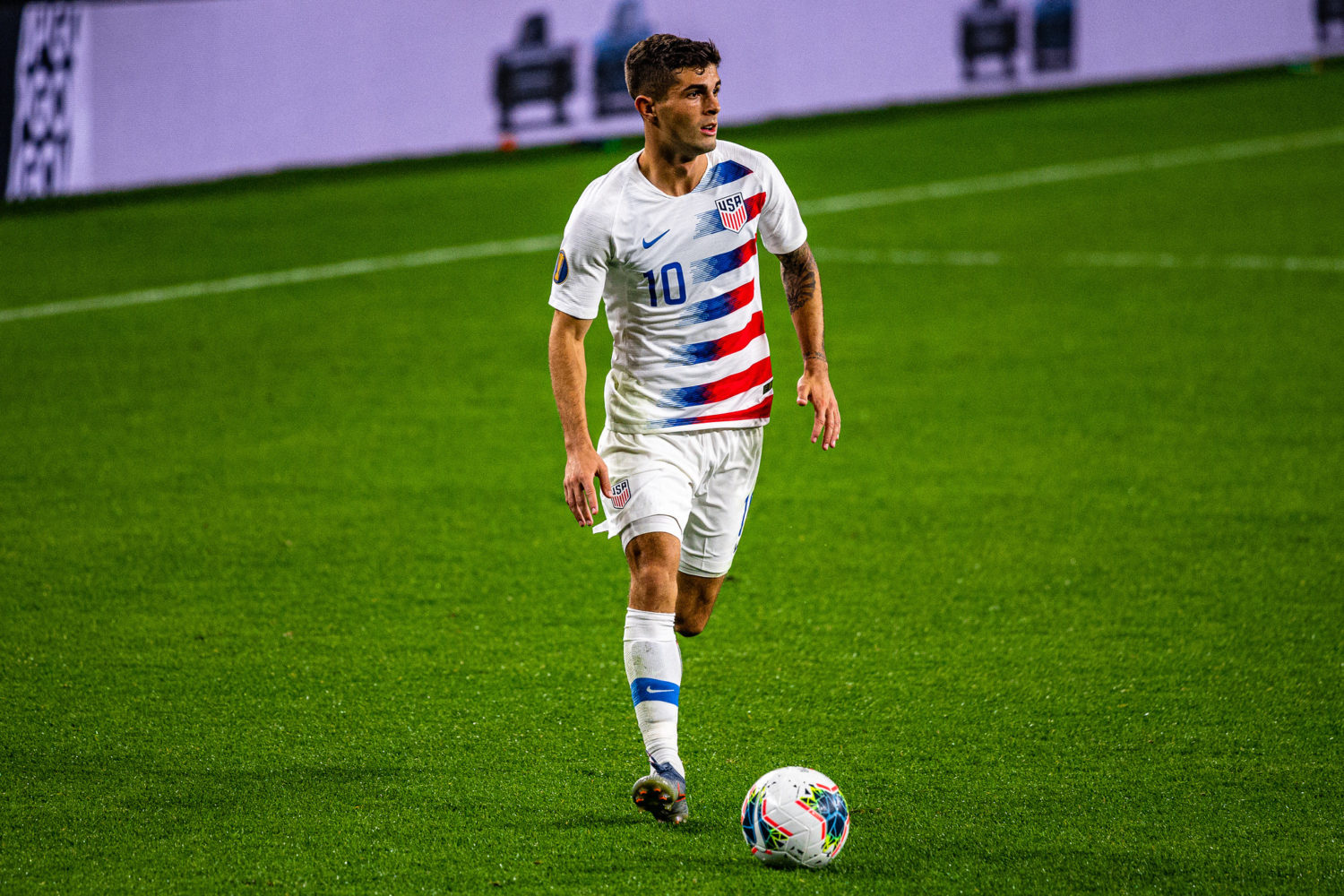After nearly three decades calling games on TV, Dave Johnson’s tenure as DC United’s play-by-play announcer will draw to a close this Sunday, when the local professional soccer team wraps up its season.
In June, Major League Soccer reached an agreement to stream games on Apple TV beginning next season, and, as The Washington Post reported, the deal did not include on-air roles for Johnson and other local MLS broadcasters. Johnson, who will continue to call radio games for the Wizards, has been DC United’s play-by-play announcer since 1996. Washingtonian recently caught up with him to discuss his departure as well as his 27 seasons with the team.
So what are your emotions like with this long run coming to an end?
It’s a bit jarring. I knew this was happening because of the Apple [TV] deal, but all of a sudden, you get into that week, and you [realize that] in the future, it’s not going to be the way it’s been for the last 27 years, where you were a local television broadcaster associated with a team. So there are a lot of emotions, just because this team really has been a part of basically half of my life. I announced the team at a press conference before we had a name back in 1995. I marched in the streets when we were trying to figure out a stadium. So I’ve been on every part of the journey. This club really is a part of me.
So your tenure as the play-by-play announcer for DC United is ending, but The Washington Post reported that you could be retained doing radio play-by-play or in some other capacity. Is that correct?
There’s nothing defined right now. In theory, any number of things could happen.
And would you be interested in staying on in some capacity, if that were possible?
The club has been tremendously supportive and still wants me involved. I’m not walking away by my choice. I’ve invested most of my life in trying to promote soccer. So I want to continue to do that.
It is an emotional thing for me in terms of my mom [who had multiple sclerosis]; one of her last good days was going to a Washington Diplomats game in 1979. [The Washington Diplomats were a local professional soccer team that dissolved in 1980.] [When she died in 1979,] being a fan of the Diplomats helped me through a very difficult time. And I realized the power of sports and the community it can create. I was very saddened when the Diplomats folded, and I vowed that if I ever have a chance to promote this great game and make a difference, I will.
You’re known for calling “It’s in the net” for goals. When and how did you start doing that?
I was doing [games for the former professional indoor soccer team] Baltimore Blast on the radio. That’s back when it was still the Major Indoor Soccer League. And if you remember that, back in the 80s, it looked like the Major Indoor Soccer League was going to be the next big thing. Unfortunately, they didn’t have enough franchises that did well. Baltimore did well and used to sell out. So I was doing the radio for that, and it just [started]. I can’t exactly pinpoint a game or moment, but I definitely started to use it just an expression of joy.
You mentioned that you started with the team even before DC United had a name. What was it like back then?
I tell the fan bases all the time—not many people get a chance to actually make history and build a league. Usually when you become a fan of whatever team, the league has already been in existence for 50 years or whatever. This is literally a case where the fans in DC and other cities, they made this happen through their support. Because without that, it would have been another casualty just like [prior professional soccer leagues in the U.S.]. So it was an exciting time because I always believed it could and should work. And I always believed that as people continued to grow with the game, it wouldn’t be like in the 1970s, where you had to explain why it was a 2-to-1 game, [or] why it wasn’t 60 to 40, or whatever. But you’re not sure that it will work—it’s not easy to establish a league. So it was an exciting time, and we just kept pushing. And here we are, 27 years later.
What was it like working at RFK back then?
It was special for me because I grew up going to Diplomats games at RFK. My former broadcast partner was Gordon Bradley, who was the coach of the Diplomats [and] who helped bring [Brazilian soccer legend] Pelé to this country. And, by extension, the fact that Pelé came to this country—that really triggered the soccer boom.
Who is your all-time favorite DC United Player?
Boy, that’s a tough one.
How about some of your favorites?
You know, from the early years, the Jaime Morenos, the Marco Etcheverrys. Ben Olsen, for what he did for the club. Bill Hamid, a homegrown player who was such a fixture for us and [as a goalie] for so long. Those are four I can think of right off the top of my head.
Do you think Major League Soccer can be successful on a streaming service like Apple TV?
I mean, streaming is continuing, [and it] will continue to be a big part of the present. I think if you look at the metrics, as I’ve said, this is a good deal for the league in terms of finances, and listen, every league is trying to strike its best deal with a media partner. So I think this is a good deal for the league from that standpoint. I mean, people are watching Premier League games on Peacock. And there’s Paramount Plus and Hulu and Netflix, and God knows what else. That’s just part of what we’re dealing with now. So I think it’s in step with what’s going on in the environment.
Would you still watch DC United games even if you’re not calling their games in some capacity in the future?
We’re not finished with the season yet, and I really don’t have an idea of what the future is going to hold. But to be clear, I’ve invested most of my life—or half of my life—in this league. I want this league to succeed. I want DC United to continue to succeed. So whether I’m calling games, whether I’m taking tickets—it doesn’t matter. I will always support DC United. And I’m still going to support Major League Soccer. I’m just not idly saying that. When you invest 27 years of your life into something, you want it to succeed. And if, for some reason, you’re not actually a part of it, you still want it to succeed
This transcript has been edited for clarity.


![Luke 008[2]-1 - Washingtonian](https://www.washingtonian.com/wp-content/uploads/2017/10/Luke-0082-1-e1509126354184.jpg)

















